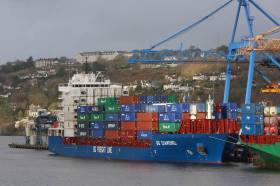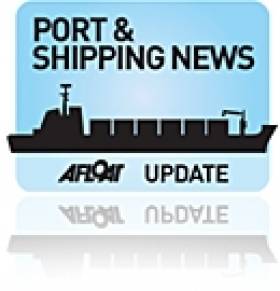Displaying items by tag: Trade Volumes
Reduction in Volume of Goods Passing through Irish Ports
Goods in terms of volumes going through Ireland's ports between April and June this year fell in comparison with the same period last year, according to the Central Statistics Office.
The seven main Irish ports - Dublin, Cork, Rosslare, Drogheda, Shannon Foynes, Waterford and Bantry Bay - handled 12.3 million tonnes of goods in the three months.
This is a decrease of 7.5% compared with the same three months of 2018.
Exports from these ports amounted to 4.3 million tonnes, an almost 9% fall on the same period last year, while there were 8 million tonnes of imports, a 6.7% decrease on the three months in 2018.
For more BreakingNews has a report.
Shipping Volumes Up in First Quarter
First quarterly figures for 2011 show that volumes of shipping and port traffic on the majority of principal sectors grew, according to the Irish Maritime Development Office (IMDO).
The figures below outline a moderate trade volume growth in four out of the five key freight segments: Lift-on/ lift-off (lo-lo), Roll-on/Roll-off (ro-ro),dry-bulk, break-bulk and the tanker/liquid market.
• Total lift-on/ lift-off (lo/lo) trades volumes grew by 3%.
• Roll-on/Roll-off export traffic was also up 2% per cent on an all island basis.
• Dry bulk volumes through ROI ports increased by 21%,
• Breakbulk volumes were also up 25%
• The tanker/liquid market was the only sector to record a decline, down by -12% compared to the same period last year.
For further information about the figures, charts and a summary released from the IMDO click here

























































